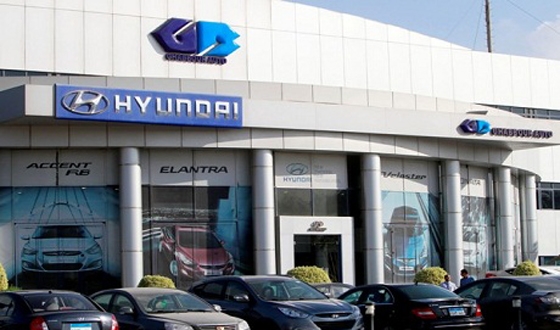Egypt's GB Auto aims to invest $1.5 billion to build two new factories, its chief executive said, in a vote of confidence for the country's political stability.
Political turmoil has hammered Egypt's economy since an uprising toppled Hosni Mubarak in 2011. President Abdel Fattah al-Sisi has pledged to get the economy back on track and lure back investors by creating a more business-friendly climate.
GB Auto is the country's biggest listed vehicle assembler and distributor, and the Egyptian distributor of three-wheeler tuk-tuks and motorbikes made by India's Bajaj.
The $1.5 billion would represent its biggest-ever investment program – dwarfing its last major investment of $40 million, made in 2010 to boost production capacity.
Chief Executive Raouf Ghabbour said he was confident about investing in Egypt because of what he called a "stable political situation".
"Our investment decisions are going to be much easier going forward," he told Reuters in an interview on Tuesday. "We are looking at a big wave of investments," said the CEO, adding that the firm was looking at building the new factories in the next 3-4 years.
GB Auto is also Egypt's sole dealer of Hyundai, Mazda and Geely passenger cars and sells cars it assembles from kits.
It has weathered the economic turmoil better than many companies, partly because demand for tuk-tuks and motorbikes has remained strong as they can provide a cheaper alternative to cars and are well suited to the country's heavily congested city roads.
The company has also benefited from having operations in Iraq and Algeria.
NEW MARKETS
Ghabbour predicted GB Auto would post revenue of about $1.7 billion for 2014 – which would represent a rise of around 30 percent compared with the year before.
He said the company would also seek to enter new markets in east Africa, without being more specific.
One of the two planned new factory complexes would include a new $50 million assembly plant for tuk-tuks and motorbikes in the city of Suez, the CEO said.
"The volumes are growing so we are planning to establish a far bigger capacity near Suez. It's a capacity of 100,000 three-wheelers and 100,000 two-wheelers, partially for exports to east African markets and partially to cover the demand in the domestic market."
While Ghabbour noted that Egypt's politics were far more stable, he seemed less optimistic about the economy.
"It will continue to be a challenge for the next few years. The budget deficit is in excess of 10 percent. You can't solve this overnight. So it will take time," he said.
Looking to other Arab states, Ghabbour said the chaos in Libya had forced him to freeze operations in what he identified as a market with huge potential.
Iraq offered strong returns on investment despite Islamic State's seizure of large parts of the country, he added.
Reuters
12 January






















































